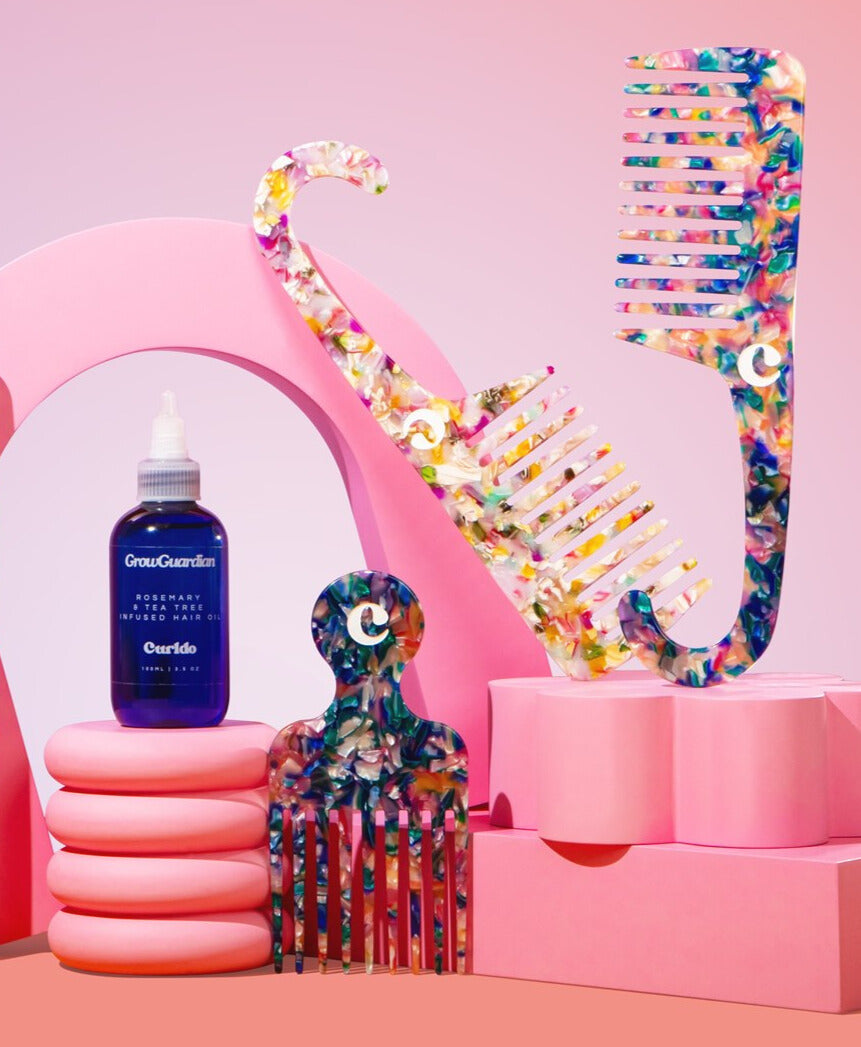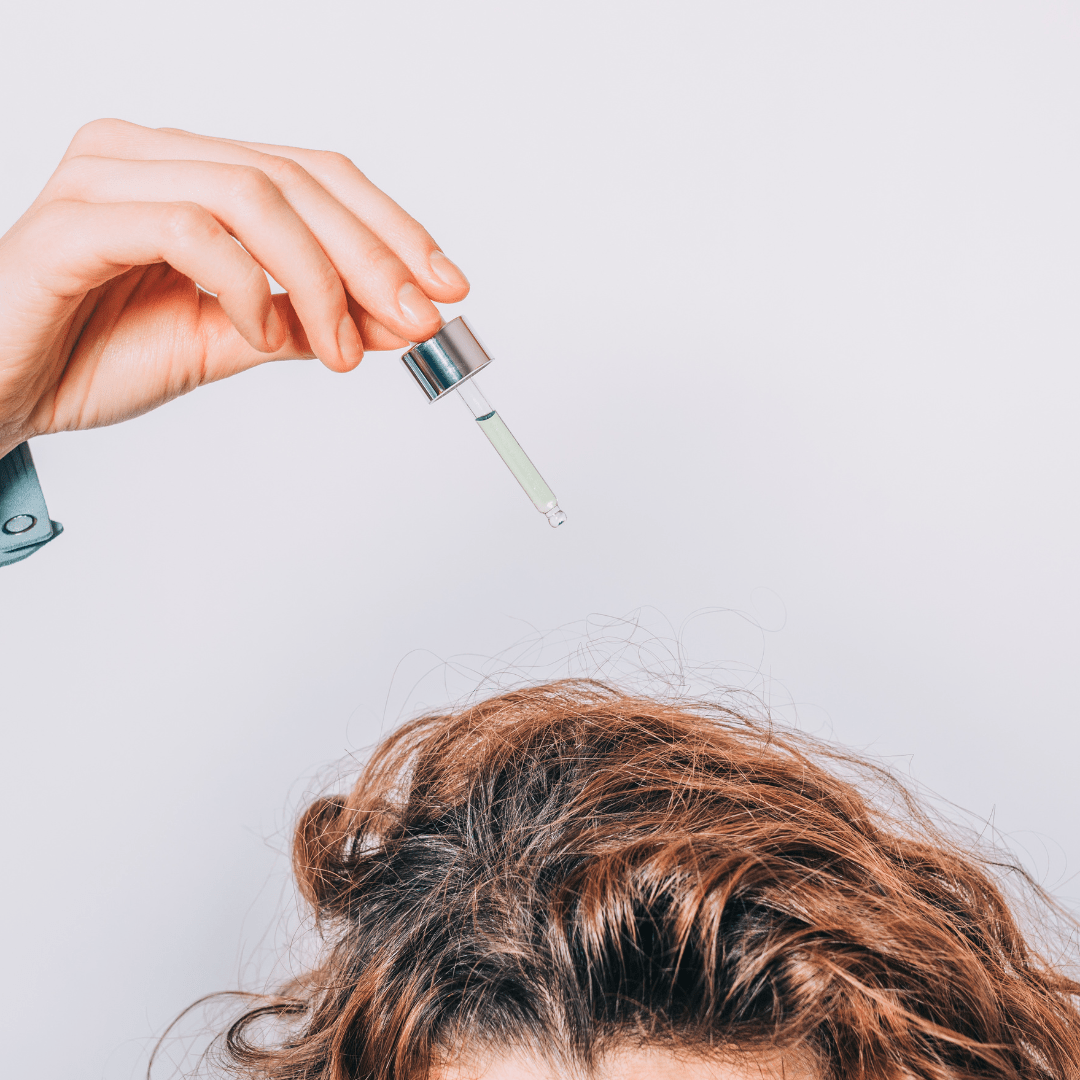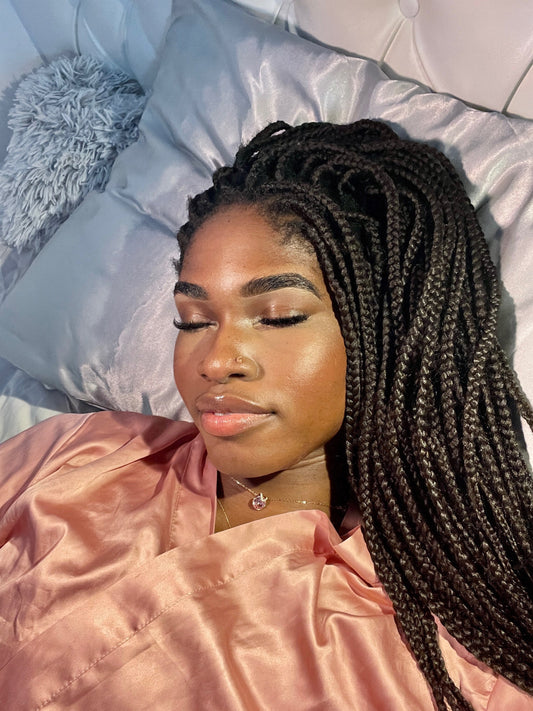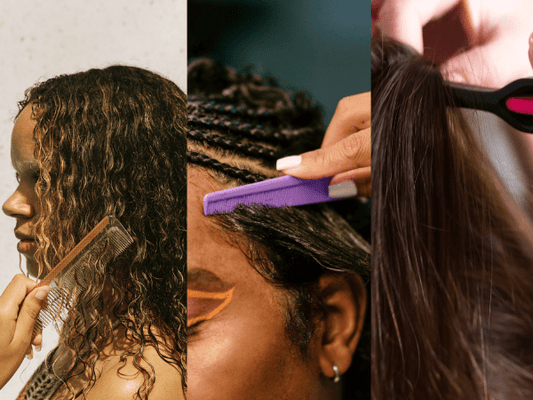A healthy scalp is the foundation of healthy hair. It's where hair follicles reside and where hair growth begins, making scalp care an essential aspect of any hair care routine. Yet, the scalp often remains an overlooked territory. Just as we nourish our skin and hair, the scalp requires attention and care to remain balanced, hydrated, and free from irritation. Here are top tips for maintaining a healthy, happy scalp, ultimately leading to stronger, more vibrant hair.
1. Cleanse Gently but Thoroughly
Regular and proper cleansing is crucial for maintaining scalp health. It removes excess oil, sweat, dirt, and product buildup that can clog pores and lead to issues like dandruff and scalp acne.
- Choose the Right Shampoo: Opt for sulfate-free shampoos that clean without stripping the scalp of its natural oils. If you have specific concerns like dandruff, look for shampoos formulated to address those issues.
- Wash Frequency: The right balance depends on your hair type and lifestyle. Overwashing can strip natural oils, while underwashing can lead to buildup. Find a frequency that keeps your scalp clean without drying it out.
2. Moisturize and Condition
Just like skin, the scalp benefits from moisture. A dry scalp can lead to itching and flakiness, while proper hydration promotes a healthy environment for hair growth.
- Hydrating Products: Use conditioners, hair masks, and scalp oils that are formulated to hydrate and nourish the scalp. Ingredients like aloe vera, hyaluronic acid, and natural oils can offer deep hydration.
- Application: Apply these products directly to the scalp or as close to the roots as possible, massaging gently to ensure even distribution.
3. Exfoliate Regularly
Exfoliation removes dead skin cells, product buildup, and excess sebum that can clog hair follicles. A clean, unclogged scalp is crucial for healthy hair growth.
- Physical Exfoliants: Scalp scrubs with gentle beads or sugar can physically remove buildup. Use light, circular motions to avoid irritation.
- Chemical Exfoliants: Products containing salicylic acid or glycolic acid can help dissolve dead skin cells and buildup without physical scrubbing.
4. Maintain a Balanced Diet
Nutrition plays a significant role in scalp and hair health. A well-balanced diet rich in vitamins, minerals, and antioxidants can support scalp health from the inside out.
- Omega-3 Fatty Acids: Found in fish, flaxseeds, and walnuts, omega-3s can help moisturize the scalp and reduce inflammation.
- Vitamins A, C, and E: These vitamins promote sebum production, collagen synthesis, and provide antioxidant protection, respectively. Incorporate citrus fruits, leafy greens, and nuts into your diet.
- Protein and Iron: Hair is primarily made of protein, while iron supports healthy blood flow to the scalp. Ensure your diet includes lean protein and iron-rich foods like spinach and lentils.
5. Protect From Environmental Stressors
The scalp, like skin, is susceptible to damage from UV rays, pollution, and extreme temperatures.
- Sun Protection: Wear a hat or use hair products with UV protection when spending extended time in the sun.
- Pollution Defense: Antioxidant-rich hair products can help protect the scalp from pollution-related damage.
- Temperature Control: Avoid very hot water when washing your hair, as it can strip the scalp of essential oils. Similarly, protect your scalp from extreme cold, which can exacerbate dryness.
6. Practice Gentle Styling
Tight hairstyles, excessive brushing, and heat styling can stress the scalp and hair follicles, leading to breakage and hair loss.
- Loose Hairstyles: Opt for loose, comfortable styles that don't pull on the scalp or hair.
- Minimize Heat Styling: Use heat protectant products and limit the use of hot tools. Embrace your natural hair texture whenever possible.
- Soft Hair Accessories: Choose hair ties and headbands that are gentle on the hair to avoid unnecessary tension and breakage.
7. Listen to Your Scalp
Pay attention to signs of discomfort like itching, tenderness, or flaking, as they can indicate underlying issues that need addressing.
- Regular Scalp Checks: Periodically examine your scalp for any changes in skin health, including redness, bumps, or unusual spots.
- Professional Consultation: If you notice persistent issues or significant changes in your scalp health, consult a dermatologist or trichologist. Early intervention can prevent more serious problems.
8. Reduce Stress
Stress can impact scalp health by exacerbating conditions like dandruff and telogen effluvium (temporary hair loss). Implementing stress-reduction techniques can have a positive effect on your scalp and overall well-being.
- Relaxation Practices: Engage in activities like yoga, meditation, or deep-breathing exercises to manage stress.
- Scalp Massage: Regular scalp massages not only promote relaxation but also increase blood circulation to the scalp, supporting healthy hair growth.
Conclusion
A healthy, happy scalp is the cornerstone of vibrant, strong hair. By adopting a holistic approach to scalp care—encompassing gentle cleansing, regular moisturization, balanced nutrition, and mindful styling—you can create the optimal conditions for hair growth and vitality. Remember, scalp care is an integral part of your overall health routine. By treating your scalp with the same attention and care you give to the rest of your body, you can enjoy the benefits of beautiful, healthy hair.











